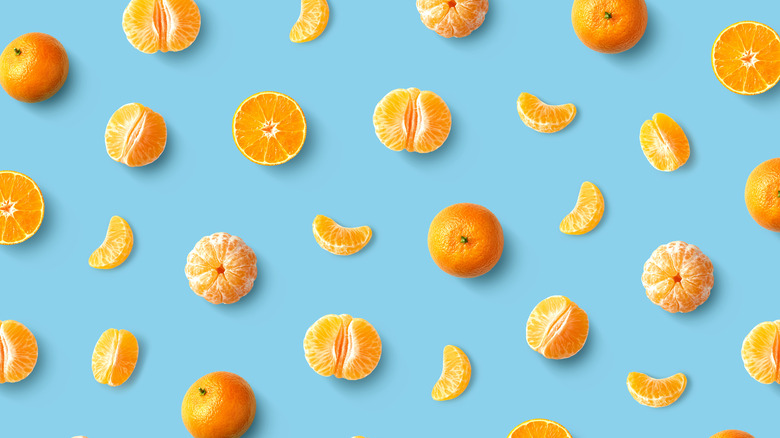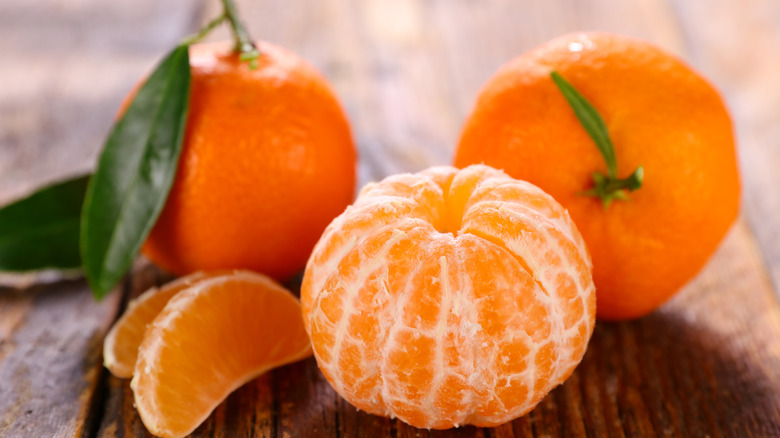Are Clementines As Healthy As Oranges?
Florida oranges are one of the most popular citrus fruits in the world, according to TasteAtlas, and for good reason. Not only do oranges offer a mesmerizingly sweet taste, but they can even benefit heart health (per Harvard T. H. Chan School of Public Health). This makes sense, considering all the vitamins and minerals oranges provide and with very few calories.
In clementines, we have an equally tasty but much easier and less messy alternative to regular oranges. Clementines are a cross between mandarin oranges and sweet oranges, according to Healthline, and just like mandarin oranges, they're high in vitamin C and minerals, helping prevent anemia and ensure a healthy metabolism. Given that they're easy to peel, you can bring them around as a snack and eat them almost as easily as you eat an apple. Clementines are about half the size of regular oranges (per Tufts University), but does that mean they're any less nutritious?
Clementines are a healthy snack
According to Tufts University, clementines and oranges share similar nutritive value after adjusting for size, although oranges offer slightly more fiber, vitamin C, calcium, and folate per ounce. On the other hand, clementines offer more iron, vitamin B3, vitamin B6, vitamin B9, and vitamin E, says FoodStruct.
In general, citrus fruits help protect against heart disease and stroke (per Harvard T. H. Chan School of Public Health). According to Healthline, eating clementines may also improve your skin (improving acne, for example) and reduce your risk of chronic diseases and lower cholesterol levels, due to its fiber.
Whether you prefer oranges or clementines, the CDC recommends aiming for at least 1½ or 2 cups of fruit per day. Due to their small size, Healthline notes that you'll need to eat two clementines to get a standard serving size, but this shouldn't be a problem since they're so tasty, easy to eat, and low in calories. Because clementines are low in fat and protein, EatingWell recommends pairing clementines with seeds, cheese, yogurt, or protein-rich nuts if you want a more filling snack.


